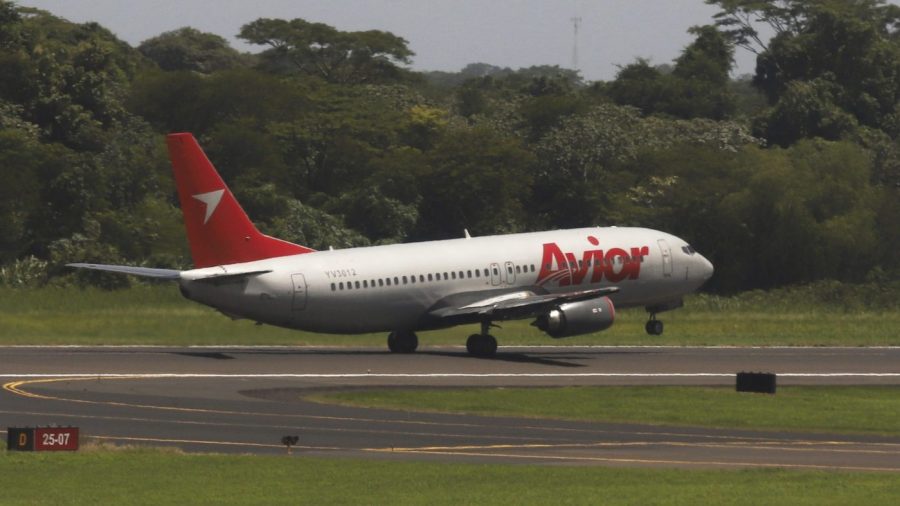Venezuela frees 10 Americans in swap for deported migrants

The Trump administration announced Friday it helped facilitate a prisoner swap, securing the release of 10 U.S. citizens held in Venezuela in exchange for the return of more than 250 Venezuelan men the U.S. had sent to be imprisoned in El Salvador.
The Venezuelan men have spent months in El Salvador’s most notorious prison, known by its Spanish acronym CECOT, after the Trump administration ignited the Alien Enemies Act to deport them in March. It is unclear what fate awaits them in Venezuela.
In exchange, the Venezuelan government released all U.S. residents held by the Maduro regime.
“It is unacceptable that Venezuelan regime representatives arrested and jailed U.S. nationals under highly questionable circumstances and without proper due process. Every wrongfully detained American in Venezuela is now free and back in our homeland,” Secretary of State Marco Rubio said in a statement.
While the Trump administration has accused the Venezuelan men it deported under the rarely used wartime authorities of being members of the Tren de Aragua gang, the evidence appeared to be slim.
Many of the accusations rested on tattoos, and among the men sent to CECOT were those who had tattoos that were references to autism and football teams.
The U.S. had agreed to pay the Salvadoran government millions to house the men, and their release is sure to raise further questions about U.S. ability to secure the release of those they deport abroad after claims they were powerless to do so.
“This operation is the result of months of negotiations with a tyrannical regime that had long refused to release one of its most valuable bargaining chips: its hostages,” Salvadoran President Nayib Bukele wrote on X.(added link)
“However, thanks to the tireless efforts of many officials from both the United States and El Salvador, and above all, thanks to Almighty God, it was achieved.”
Venezuela and El Salvador do not have diplomatic relations.
Under the deal, Venezuelan political prisoners were also released, but neither U.S. nor Salvadoran authorities made clear the number of those released nor where they would reside.
“We also welcome the release of Venezuelan political prisoners and detainees that were also released from Venezuelan prisons. …The regime’s use of unjust detention as a tool of political repression must end. We reiterate our call for the unconditional release of remaining unjustly and arbitrarily detained political prisoners and foreign nationals,” Rubio said.
Among the Venezuelan men now set to be returned to their home country are those who fled to escape the Maduro regime.
Andry Hernandez Romero, a gay makeup artist, fled Venezuela and to seek asylum in the U.S. after facing persecution due to both his sexuality and his political views.
In court filings, Hernandez Romero’s mother said her son “was persecuted both for his sexual orientation and for his refusal to promote government propaganda” while working as a makeup artist at a Caracas television station.
Hernandez Romero is now a lead plaintiff in a case challenging the Trump administration’s use of the Alien Enemies Act to deport the men. Several judges who have weighed in on similar cases determined the Trump administration overstepped by invoking the wartime powers to go after alleged gang members.
Attorneys say his tattoos show the problems with seeking to base gang affiliations on the markings.
Hernandez Romero has crown tattoos the government alleges are connected with Tren de Aragua, but friends have told media outlets the markings are a nod to the Three Kings Day celebrations his hometown is famous for.
Like others sent to CECOT, Hernandez Romero does not have a criminal record and also came to the U.S. legally after making an appointment at a port of entry to claim asylum.
A review by the libertarian Cato Institute of those for whom immigration records were available found that at least 50 entered the country legally.
A New York Times investigation also found serious criminal accusations for 32 of the men sent to CECOT, while the majority did not have criminal records beyond immigration offenses.
The release of the men raises questions about their futures, as well as what they might share about their treatment in El Salvador.
“The fate of the Venezuelans being deported from El Salvador after months of imprisonment is uncertain. Many were FLEEING Venezuela due to persecution or torture from the Maduro regime. Will the regime again throw them in jail, or will their new public profile protect them?” Aaron Reichlin-Melnick, a senior fellow at the American Immigration Council, wrote on X.
“Once the Venezuelans are released, we will hopefully also learn what happened to them during their FOUR MONTHS of imprisonment without trial in El Salvador under contract by the United States — how they were treated and what conditions were like.”
Updated at 5:32 p.m. EDT